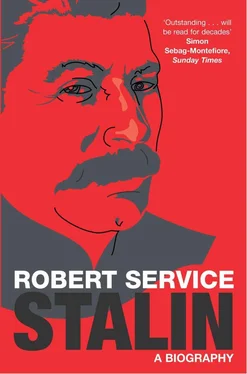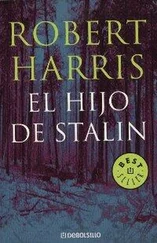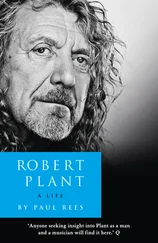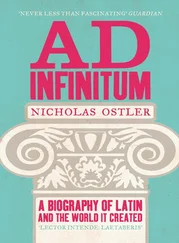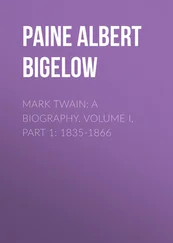Or was he just a bureaucratic mediocrity protecting the interests of the administrative cadres of the one-party state? According to this interpretation, the administrators in party, police and economic commissariats aspired to expand their authority and privileges. Already in the 1920s they had abandoned their revolutionary commitment. Thus Stalin understood what they wanted and used his position in the Central Committee Secretariat to fulfil their desires. As the USSR’s supreme bureaucrat he too was bound to benefit from such an outcome. That the administrative cadres should have come to wield this power was attributed to deep tensions in Soviet state and society. The October 1917 Revolution had been made in the name of the working class and the poorest sections of the peasantry. But these groups failed to confirm themselves in power. The resultant tensions made for a situation that gave opportunities to the ‘bureaucracy’. Unscrupulous and well disciplined, the functionaries of party and state steadily formed themselves into a caste separate from the rest of society, and Stalin’s grey eminence was their leading incarnation. 8
Hardly a year has passed since Stalin’s death in 1953 without the publication of yet another biography. For three decades the material was common to all: the memoirs, old and new, together with the files excavated from the archives at the command of Nikita Khrushchëv — Stalin’s successor in the Kremlin — as he shoved Stalin off the pedestal of communist esteem from the mid-1950s. Then in 1985 Mikhail Gorbachëv became Party General Secretary. Gorbachëv resumed the campaign against Stalin and all his works and a flood of documentary data was released. But it took the rise to power of Boris Yeltsin in 1991 for most scholars to gain access to the archives. It was a heady period in which to carry out research. The inconceivable had become reality: the Central Party Archive on Pushkin Street in Moscow was opened to independent scholarship and a vast number of holdings were declassified. 9This is a process with a long road yet to travel, and there has been occasional regression. But any comparison with earlier years is salutary. It is now possible to explore the political, ideological, cultural and private life of Joseph Stalin to a degree of intimacy that was previously impossible.
Writers in Russia have taken their opportunity. Their forerunner was the Soviet communist dissenter Roy Medvedev, who wrote a denunciation of Stalin in the mid-1960s. 10The book was refused publication in the USSR and was circulated there only in illicit copies. Its basic analysis was not novel: Medvedev argued that Stalin was a cynic and a bureaucrat with a maladjusted personality who suffocated the revolutionary ideals of Lenin. Under Gorbachëv there were further attempts to analyse Stalin. Dmitri Volkogonov, while showing that Stalin was a murderous dictator, called for his virtues as an industrialiser and a military leader also to be acknowledged. 11Later biographers in Russia objected to such equivocation, and Edvard Radzinski produced a popular account that focused attention on the psychotic peculiarities of his subject. 12While adding new factual details, Volkogonov and Radzinski offered nothing in their analyses not already available in the West.
Western historians themselves largely ceased to reconsider the basic conventional wisdom developed between the 1920s and 1950s. The differences between accounts centred on particular aspects of his personality, attitudes or policies. The disputes have been highly charged. There has even been controversy about whether Stalin was responsible for the lunges towards the Great Terror. American scholar J. Arch Getty proposed that the state’s terrorist measures sprang not from Stalin’s initiative but from pressures applied by a group of Politburo members aiming always to raise the rate of industrial expansion and resenting the passive resistance of the lower echelons of the party and governmental official-dom. 13It was alleged that Stalin was merely a power broker among the Kremlin’s politicians. Supposedly he only instigated the mass killings in order to comply with the strong opinions expressed in the supreme ruling group. This was an extraordinary claim. Even the long line of writers who denied that the Gulag victims were truly to be numbered in the millions had assigned decisive responsibility to Stalin.
Nowadays virtually all writers accept that he initiated the Great Terror. The exceptions, however, do not lack support. Among them are those Russian nationalists who feel nostalgic about the Soviet victory in the Second World War and regret the collapse of the USSR. Many Georgians, too, resent any attack on their most famous compatriot even if they recognise that he committed appalling abuses against Soviet society. Yet among the rest of us there remains much controversy. There are several ways in which I hope to illuminate the murky corners of Joseph Stalin’s life. One involves looking closely at his upbringing, family life, wives, children and other relatives. This was difficult until recently: Stalin had taken care to excise references to his private life from published material. He also executed or imprisoned many who knew him well. Even his sister-in-law Anna Allilueva, who carefully submitted her draft memoir for his comments, was thrown into the Lubyanka. Stalin’s personality was mysterious in his lifetime, as he meant it to be; and many of the best-known sources on him, especially the memoirs by Trotski and Khrushchëv, offered accounts pervaded by political hostility.
Since the late 1980s it is has been possible to make a closer analysis. Stalin’s private life and entourage have been investigated by Simon Sebag Montefiore and Miklós Kun. 14His preferences in food and leisure were not drastically abnormal, at least until he achieved despotic power. Many in his entourage felt that his enemies had exaggerated his defects of personality. Such information provides an avenue towards understanding his public career. I make no apology for intensifying the examination of him at school, in the seminary, in early party groups and in the intimacy of his family. His medical condition and psychological profile also deserve attention. Such material contributes to an assessment of his motives and comportment in his public career.
Another theme of the book is the degree of Stalin’s influence before Lenin’s death. No biography fails to depreciate his already developed skills as a politician. This book benefits from the political and psychological insights of Robert Tucker, Adam Ulam, Robert McNeal and Ronald Hingley. 15Yet even these works assumed that Stalin did not count for much among Bolsheviks before 1917. Tucker contended that Stalin’s attitude to Lenin amounted to mere hero-worship through to the 1930s. 16Lenin’s unchallenged dominance is also the key theme of the study by Robert Slusser, who characterised Stalin in 1917 as ‘the man who missed the Revolution’. 17Purportedly Stalin was Lenin’s errand boy before and during 1917. The same approach has been maintained with reference to the years after the October Revolution as biographers have insisted that Stalin was a dour bureaucrat in the backrooms of Bolshevism. At most, he has been depicted as Lenin’s trouble-shooter — the man who was sent into emergency situations with a specific brief from the Kremlin. But credence is rarely given to the possibility that Stalin’s membership of the supreme bodies of the Bolshevik party and the Soviet government shows that he was already an established member of the communist ruling group. The following chapters question this long-established historical opinion.
And the biographers, while rightly stressing that Stalin came to wield enormous power from the 1930s, have usually omitted to note that he was not omnipotent. He had to operate the machinery of the system of power he inherited. He could modify it, but he was unable to transform it without shattering the basis of ‘Soviet power’. In the Great Terror of 1937–8 he strove to eliminate tendencies in politics that restricted the impact of central commands: clientelism, localism and administrative passive resistance. He also tried to liquidate the obstructive trends pervading Soviet society which counteracted the Kremlin’s policies. Not only administrators but also workers and collective-farm labourers found ways to defend themselves against Moscow and its requirements. Stalin’s introduction of fresh policies from the late 1920s was accompanied by adjustments to the communist order. But these adjustments induced a syndrome of interests which obstructed further basic change. It is conventional to depict Stalin as an unimpeded despot. Without doubt he could introduce internal and external policies without contradiction in the Politburo. But I shall show that his personal rule depended upon his willingness to conserve the administrative system he had inherited. He also had to assimilate himself in many ways to the mental outlook of the people of the Soviet Union if he wanted to go on ruling them without provoking revolt.
Читать дальше
